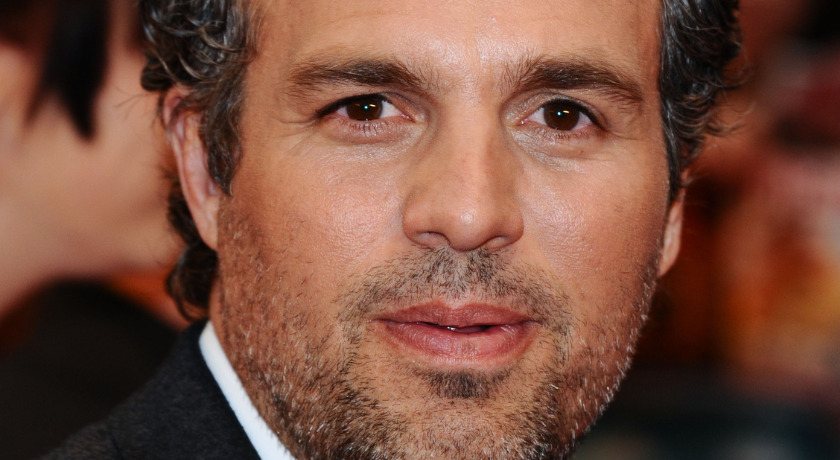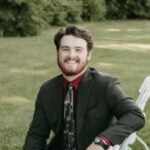Ruffalo suffered depression from an early age. When he was in grade school, he was a victim to bullying and alienation from his peers. In 2004, he opened up about his childhood troubles to Parade.
“One of the things that was always very difficult for me was grade school,” he said. “Feeling like I was strange and unique and freakish. I didn’t feel like I fit anywhere.”
He quickly discovered that acting was his purpose and his source for achieving the happiness he so desperately strived for. But he didn’t go through that process alone. His childhood friend, Michael, helped him get through the tough days of being the outcast and acted as a great source of support for Mark.
As Mark was trying to build a name for himself in the acting world, prior to his Hollywood stardom, Michael still battled depression. In 1994, Michael took his own life, leaving Mark to question his own depression and thoughts of suicide.
“When he died, it rocked me out of a dark depression,” he continued. “The moment he left, I realized that death wasn’t an escape, that suicide wasn’t an answer. I understood the value of life. Acting became my way of addressing it.”
And so he strived to pursue his acting career in honor of his friend’s legacy and to enact his own purpose in being alive.
Ruffalo started scoring movies by the late 90s and early 2000s, making a name for himself in You Can Count On Me in 2000 and starring alongside Robert Redford and The Sopranos star James Gandolfini in the 2001 film, The Last Castle. Immediately, he started gaining traction and was in the conversations with many big name directors, including M. Night Shyamalan for his 2002 film, Signs.
But Mark had been keeping a secret from the media and from Hollywood. In 2001, he woke up from a dream where he felt he had a brain tumor. He went to a doctor and confirmed the worst, that it was in fact true.
“A few weeks after my son was born,” he told Parade, “I had a bad dream and woke up in tears. In the dream, I knew I had a brain tumor. I had it checked out—that’s how real the dream was. I was told I had an acoustic neuroma, a tumor. It was terrifying.”
Luckily, after a 10-hour surgery, they removed the tumor after discovering it was benign. However, the procedure left part of his face immobile and due to his medication intake, he was unable to partake in Shyamalan’s film.
But Mark didn’t look at that circumstance as something that set him back in his career. Instead, he basked in the opportunities that presented themselves while he was forced to take a break from acting.
“Looking back,” he said, “everything that seemed a curse was really the best possible thing, even my tumor. I had a whole year with my son and wife, every waking hour. There is living you’re forced to do when you’re ill, a constant expanding of what you thought you were capable of being. I wouldn’t give any of it back. I’ve learned that even in sorrow, there’s joy.”
Eventually, Mark regained the majority of feeling and mobility in his face and resumed acting. But tragedy was relentless on his already difficult life.
In 2008, Mark’s brother, Scott, was found dead in his Beverly Hills home with a bullet wound in his head at the age of 39. The presumed murder was left unsolved and still remains the case to this day.
“I was the actor pushing 30 and still doing 30-seat theaters and he was the mayor of Beverly Hills,” he told Men’s Journal in 2013, using the term “mayor” as a phrase of endearment, as Scott was a well-known hairdresser. “For years, people would meet me and go, ‘You’re Scotty Ruffalo’s brother? I love your brother. He’s f–king amazing.’”
Again, although distraught and left wanting answers that he’d never receive, he decided to use his acting career as a source of carrying his brother’s legacy.
In 2010, he starred in The Kids Are All Right, and immediately gravitated towards the role after initially reading the script because of how much it reminded him of his brother.
“His charm, his spirit, his sense of humor, his daring. How great he was with women. How he sort of devoured life,” he said. “I’m only capturing a tiny glimpse of him. But I think it ended up honoring him in a really nice way. He was a beautiful guy.”
But still suffering from the anxiety that inevitably haunted him throughout his many losses, he turned to medication.
“I was sort of feeling anxious all the time, and was starting to get really desperate,” he told Rolling Stone in 2015.
But he soon realized, with the help of a friend who was a former drug addict, that medication was not the route for him to take to reach a sense of contentment.
He soon turned to meditation, and it proved to help him defeat his anxiety and depression.
“My work started to change, my luck started to change,” he continued. “The way the world looked to me changed. Like, with all the crazy s–t going on in the world, I actually have an enormous amount of hope.”
And he acted on this hope, soon co-founding The Solutions Project in 2011, an environmental activism organization that fights for both climate and racial justice.
In 2020, he told Time Magazine, “I hate to say it, but the environmental movement is mostly white, and the power is mostly with white people in leadership. And we’re seeing a shift in that. The more we center on those who’ve been living with this and already developing the solutions, I think the quicker we’ll move along.”
Today, he continues to fight for the earth while also conquering the Hollywood world. If you’re ever wondering whether or not you can carry on and be successful after suffering terrible losses in your life, just look to Mark Ruffalo and see just how much he’s been able to accomplish.
Sources:
https://time.com/5897795/mark-ruffalo-gloria-walton-climate-justice/
https://www.suggest.com/mark-ruffalo-tragedy/2674756/



